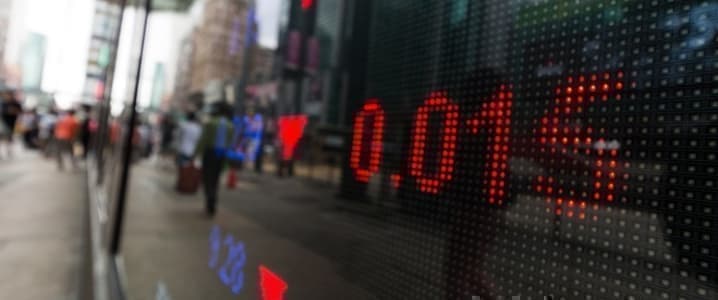
With China’s Fourth Plenum meeting of its ruling Communist Party having ended in October and the U.S. 2020 presidential election campaign gathering pace, both sides have their reasons to unveil some sort of progress in the long-running trade war between them. Such an announcement had been expected around the time of the Asia-Pacific Economic Cooperation meetings scheduled for 16-17 of November but when Chile cancelled the event the timing has become more fluid. The recent tentative statements that U.S. and China will roll back tariffs on each other’s goods incrementally as they continue to negotiate a broader trade deal were sufficient to push crude oil futures lower for a short while. However, the reality is that any announced trade deal between the two sides in the current political environment will be short-lived, fractious, and volatile for all asset classes, including oil.
For China, the next date that will be of key concern is the 18th of November, the point at which the licensing that permits China’s Huawei Technologies to buy components from U.S. companies to supply existing customers is set to expire. This follows the U.S. government’s blacklisting of Huawei in May on the allegations that the Chinese technology giant is involved in activities contrary to U.S. national security or foreign policy interests. At the same time, the U.S. added another 46 Huawei affiliates to the ‘Entity List’ (to a total of more than 100 Huawei entities) that comprises companies effectively banned from doing businesses with U.S. firms. “Such is the centrality of U.S. semiconductor firms in manufacturing chains that a ban by Washington could effectively cut off global semiconductor supplies,” Rory Green, Asia economist for TS Lombard told OilPrice.com earlier this week. “The result would be a modern day equivalent to the Japan oil embargo that was imposed by the U.S. [on August 1941, in response to Japanese actions in then-Indochina] and that was a key prompt for the attack on Pearl Harbour,” he said. “For hawks in the Chinese government, the U.S. actions against Huawei and its related companies would be very near to a declaration of war and if the U.S. does not grant another extension to the Huawei ban then the bad feeling this will generate in China will be enormous,” he added.
The U.S. position is similar to that of China’s, although Trump’s approach is more skewed to political considerations than classical economic ones. Trump needs to de-escalate the trade war with China, at least to the extent that it is no longer perceived to be meaningfully damaging U.S. economic growth. According to the statistics, since World War I, the sitting U.S. president has won re-election 11 times out of 11 if the economy was not in recession within 24 months ahead of an election. Conversely, presidents who went into a re-election campaign with the economy in recession lost five out of seven times. Up until very recently, many of the smarter investment houses were predicting a fifty per cent chance of an outright U.S. recession within the coming 12 months. In recent, weeks, though, this figure has improved in favour of Trump, with Goldman Sachs now putting the risk at 24 per cent, Morgan Stanley ‘around 20’ per cent, and Barclays at less than 10 per cent.
A deal with China – almost no matter how superficial in the first instance – is also key to Trump’s ability to maintain his Republican support in the Senate that he needs to avoid impeachment and he is highly aware of how big the trade war plays in the news and in the markets. During his meeting with China’s Vice Premier, Liu He, Trump said: “Every time there’s a little bad [trade war] news, the market would go down incredibly. Every time there was a little bit of good news, the market would go up incredibly. And yet, other news that was also very big, the market just didn’t really care. They just seemed to care about the deal with [the] USA and China, and that’s okay with me.” On a broader electoral note, being seen to be tough on China is becoming even more appealing to U.S. voters with a recent survey by the non-partisan U.S. think tank, Pew Research Center, in Washington, showing that only 26 per cent of U.S. citizens had a favourable view of China, down from 38% the year before.





























